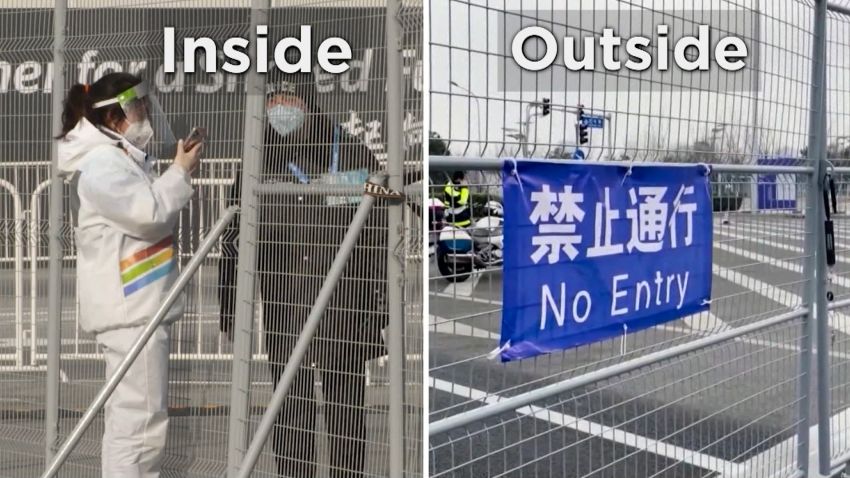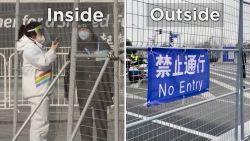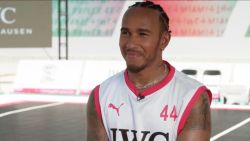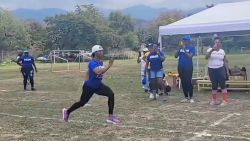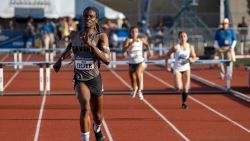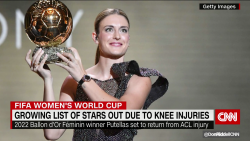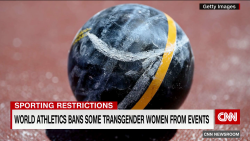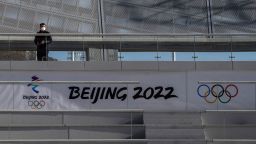Eagle-eyed viewers watching the 2022 Beijing Games will once again notice a now familiar acronym – ROC, which stands for the Russian Olympic Committee.
Its significance? An opportunity for clean Russian athletes to compete in the Olympics while their country remains banned from the Games because of a doping scandal.
Russian athletes will be competing under the neutral banner for the second consecutive Games after they did so at last year’s Tokyo Olympics.
There are specific rules the ROC has to follow to distinguish itself from the country of Russia.
But first, here is a reminder of how events unfolded at the 2018 Winter Games in Pyeongchang.
Russia banned, but ‘clean’ athletes given lifeline
In December 2017, a little over two months before the start of the Winter Games, the International Olympic Committee (IOC) announced an unprecedented ban on Russia competing in South Korea as a result of the country’s “systemic manipulation” of anti-doping rules.
But there was a catch.
Russian athletes who could prove that they were clean were “invited” by the IOC to compete as an “Olympic Athlete from Russia” (OAR), under the Olympic flag and anthem – in all, 168 athletes were eligible to compete in Pyeongchang.
Despite being the third largest team at the Games, OAR only finished 13th in the medal table – winning two golds, nine fewer than at Sochi 2014.
Two OAR athletes failed drugs tests during the Games, but it wasn’t enough to prevent Russia from being welcomed back into the Olympic family shortly after the Games had concluded.
That, though, wasn’t to be the end of the story.
Further Russian sanctions
In December 2019, the World Anti-Doping Agency (WADA) banned Russia from all international sporting competitions, including the Olympics, for four years over doping non-compliance.
The punishment was related to inconsistencies in data retrieved by WADA in January 2019 from the Moscow lab at the center of a 2016 report that uncovered a widespread and sophisticated state-sponsored sports doping network.
WADA’s compliance review committee suggested sanctions because the Russian Anti-Doping Agency (RUSADA) failed to fully cooperate during probes into the country’s sports.
A year later, the Court of Arbitration for Sport (CAS) cut Russia’s ban in half to two years following an appeal.
The verdict means Russian athletes are currently unable to compete under their country’s name, flag and national anthem at major international sporting events until December 16, 2022 – thus covering both the 2022 Winter Games and 2022 FIFA World Cup in Qatar.
WADA, though, warned ahead of the Beijing Games that although Russia is now following anti-doping rules it shouldn’t assume sanctions will automatically lifted when the country’s suspension ends.
“RUSADA needs to follow the rules, the requirements, and standards and so far they are doing it […] This is an ongoing process, this is not end of this chapter,” WADA President Witold Banka told Reuters in February.
Russia’s flag and anthem, therefore, won’t be seen or heard at the Olympics until the 2024 Games in Paris at the earliest.
The creation of the ROC and Tokyo success
In February 2021, the IOC announced Russian athletes would compete under the acronym ROC at the Tokyo 2020 and Beijing 2022 Olympics.
The team would still bear the country’s colors of white, blue and red.
But instead of Russia’s flag, the ROC’s flag features its colors in an Olympic flame placed above the five Olympic rings.
As many as 335 athletes competed for the ROC in Tokyo with the team finishing 5th in the medal table – the most medals won by Russia’s athletes since Athens 2004.
Further success is now being forecast at the Beijing Games.
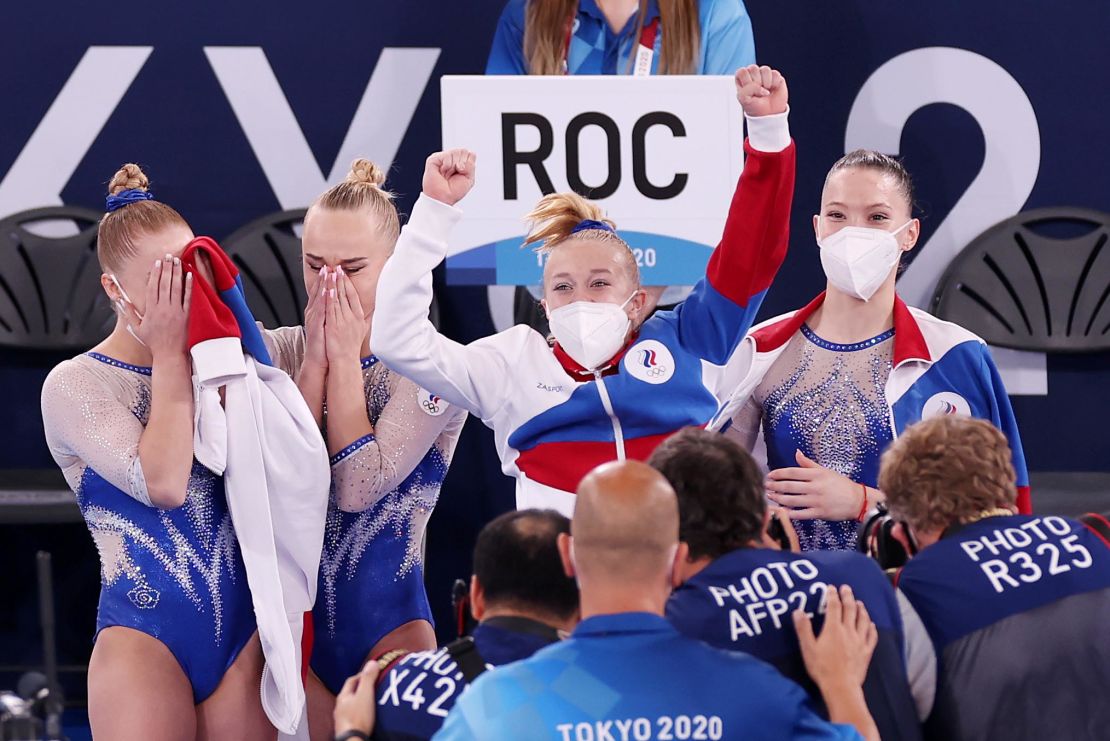
Beijing awaits, Putin poised to attend
The ROC is predicted to come second to Norway in the medal table with 11 golds, 12 silvers and 9 bronzes, according to analysis by sports data company Gracenote.
Fifteen-year-old figure skating sensation Kamila Valieva, cross-country skier Alexander Bolshunov and the men’s ice hockey team are among those strongly tipped for success.
Just as in Tokyo, ROC gold medal winners will be played Pyotr Tchaikovsky’s “Piano Concerto No. 1” instead of the Russian national anthem during their medal ceremony.
The ROC will have 212 athletes at Beijing 2022 and has been predicted to finish in the top three in the final medal standings.
They can expect to be watched on at the Opening Ceremony by Russian President Vladimir Putin after he assured Chinese leader Xi Jinping that he would attend the event.
It comes after the United States, United Kingdom and Australia all announced a diplomatic boycott of February’s Games.
Meanwhile, the ongoing Covid-19 pandemic will once against cast a shadow over proceedings.
Over 85% of Russian athletes bound for Beijing have so far been vaccinated, according to Russian Deputy Prime Minister Dmitry Chernyshenko.


